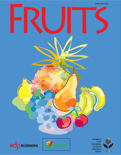
Fruits
Scope & Guideline
Nurturing Research, Growing Solutions in Fruit Science.
Introduction
Aims and Scopes
- Postharvest Technology and Quality Management:
Research exploring methods to enhance the quality and shelf-life of fruits postharvest, including treatments and storage techniques that preserve nutritional and sensory qualities. - Cultivation Practices and Agronomy:
Studies investigating various agronomic practices that optimize fruit yield and quality, including soil management, irrigation, and pest control strategies. - Genetic Diversity and Breeding:
Exploration of genetic resources and breeding techniques aimed at improving fruit varieties, including resistance to diseases and environmental stresses. - Nutritional and Phytochemical Analysis:
Research focusing on the nutritional content and bioactive compounds of fruits, assessing their health benefits and potential functional claims. - Innovative Propagation and Cultivation Techniques:
Investigations into novel propagation methods and cultivation techniques that enhance fruit production efficiency and sustainability. - Environmental Impacts on Fruit Development:
Studies examining how environmental factors influence fruit growth, development, and quality, with a focus on climate change and agroecological practices.
Trending and Emerging
- Sustainable Agricultural Practices:
There is a notable increase in research emphasizing sustainable farming practices, including organic farming and agroecological approaches, highlighting the importance of environmental stewardship in fruit production. - Functional Foods and Health Benefits:
A rising interest in the health benefits of fruits, particularly their roles as functional foods rich in antioxidants and other bioactive compounds, is evident in recent publications. - Precision Agriculture and Technology Integration:
Emerging studies focus on the application of precision agriculture techniques, including the use of technology for optimizing fruit production, monitoring growth conditions, and improving resource efficiency. - Climate Resilience in Fruit Crops:
Research addressing the impact of climate change on fruit production and the development of resilient fruit varieties is gaining prominence, reflecting a need for adaptability in changing environmental conditions. - Biotechnological Advances in Fruit Breeding:
There is an increasing trend towards the application of biotechnological methods, such as genetic engineering and molecular markers, to enhance fruit breeding programs and improve crop traits.
Declining or Waning
- Traditional Pest Control Methods:
Research related to conventional pest control strategies, such as chemical pesticides, has decreased in favor of more sustainable, integrated pest management practices. - Ornamental Fruit Studies:
The focus on ornamental fruit varieties seems to be waning, with a shift towards more commercially viable and nutritionally important fruit crops. - Postharvest Handling of Exotic Fruits:
While previously a significant area of interest, studies specifically addressing the postharvest handling of exotic fruit species are becoming less frequent, possibly due to a broader focus on more widely cultivated varieties. - Historical Cultivation Practices:
Research documenting historical or traditional fruit cultivation practices has seen a decline, as the journal's emphasis shifts towards modern, evidence-based agricultural practices.
Similar Journals

POTATO RESEARCH
Fostering advancements in crop science and food systems.POTATO RESEARCH is a prestigious journal dedicated to advancing the scientific understanding of potato cultivation and its wider implications in the fields of agronomy, crop science, and food science. Published by Springer in the Netherlands, this journal boasts an impressive impact factor and ranks in the Q2 category for both Agronomy and Crop Science, as well as Food Science in 2023, affirming its significant contribution to these disciplines. With over five decades of research converged from 1970 to 2024, POTATO RESEARCH serves as a vital platform for researchers, professionals, and students interested in the latest findings and innovations that affect potato production and processing. Although it is not an open-access journal, it remains a crucial resource for those dedicated to enhancing agricultural sustainability and food security. For inquiries or submission details, please refer to their office located at Van Godewijckstraat 30, 3311 GZ Dordrecht, Netherlands.

EUROPEAN JOURNAL OF HORTICULTURAL SCIENCE
Exploring innovative practices in horticultural science.The European Journal of Horticultural Science, an esteemed publication of the International Society for Horticultural Science (ISHS), serves as a pivotal platform for advancing the field of horticulture since its inception in 2003. With its base in Germany, this journal occupies a significant position in the Q3 quartile of horticultural research, confidently ranked #60 out of 115 in the Agricultural and Biological Sciences category on Scopus, reflecting its relevance and impact within the scholarly community. The European Journal of Horticultural Science fosters open access to a wealth of research and insights, facilitating knowledge sharing among researchers, professionals, and students dedicated to the innovative and sustainable practices in horticultural science. As it embarks on a new chapter through its convergence years leading up to 2024, the journal aims to enhance the dialogue on contemporary horticultural challenges and advancements, making it an essential resource for those seeking to contribute to and learn from ongoing developments in this vital field.
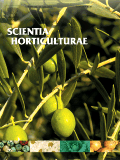
SCIENTIA HORTICULTURAE
Advancing horticultural science for a sustainable future.SCIENTIA HORTICULTURAE, published by Elsevier, is a leading journal in the field of horticulture, with an impressive impact factor reflected in its Q1 ranking (2023) and position as #6 out of 115 in the Scopus category for Agricultural and Biological Sciences. This journal plays a pivotal role in disseminating cutting-edge research and innovations in horticultural science and technology, contributing significantly to the understanding of plant cultivation, production, and management. With continuous publication since 1973, SCIENTIA HORTICULTURAE offers an essential platform for researchers, professionals, and students alike who are focused on the advancement of sustainable horticultural practices. Although it is not an open-access journal, it provides a wealth of data and findings that can be accessed through institutions and libraries. Located in the Netherlands at RADARWEG 29, 1043 NX AMSTERDAM, this journal remains an invaluable asset to the global horticultural community throughout its converged years, fostering collaboration and elevating standards in horticulture research.
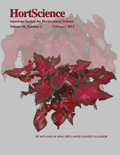
HORTSCIENCE
Exploring the forefront of horticultural research.HORTSCIENCE is a prestigious journal published by the American Society for Horticultural Science, focusing on the latest research and developments in the field of horticulture. With an ISSN of 0018-5345 and an E-ISSN of 2327-9834, this journal has established itself as a vital resource for horticultural scientists, practitioners, and educators since its inception. As of 2020, it has embraced an Open Access model, promoting the dissemination of scientific knowledge and enabling wider accessibility to its rich content. HORTSCIENCE currently holds a Q2 ranking in the Horticulture category for 2023, placing it in the top tier of its field with a Scopus rank of 36 out of 115 in the area of Agricultural and Biological Sciences. This journal publishes empirical research, significant advancements, and comprehensive reviews that contribute to the understanding and improvement of horticultural practices, making it an essential publication for anyone involved in horticultural research or education.
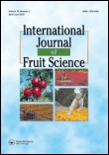
International Journal of Fruit Science
Pioneering studies that transform agronomy and ecology.International Journal of Fruit Science, published by TAYLOR & FRANCIS INC, is a preeminent platform for the dissemination of high-quality research in the fields of Agronomy, Horticulture, Ecology, and Plant Science. With an impressive track record since its inception in 2005 and ongoing convergence up to 2024, this journal serves as a vital resource for scholars and industry professionals alike. Renowned for its rigorous peer-review process and comprehensive publication of cutting-edge studies, it holds a distinguished position in multiple Scopus rankings, including a top 10 placement in Horticulture (Rank #8/115) and notable percentiles, reflecting its significant impact in the academic community. Researchers can delve into critical insights related to fruit cultivation, genetics, and sustainability, bolstered by its Q1 and Q2 quartile standings across various categories. Though the journal is not open access, it remains an essential read for those intent on advancing knowledge and practices within the rapidly evolving landscape of fruit science.

AGRONOMIA MESOAMERICANA
Championing open access to enrich the agronomy landscape.AGRONOMIA MESOAMERICANA is a distinguished open-access journal published by UNIV COSTA RICA, dedicated to advancing knowledge in the fields of agronomy, crop science, food science, and soil science. Since its inception in 1990, the journal has provided a platform for researchers and professionals to disseminate their findings, contributing significantly to the agricultural sciences. With an E-ISSN of 2215-3608, it operates from Costa Rica, specifically from the Centro Investigaciones Agronómicas, situated in San José. Despite its current classification in the Q4 quartile for 2023 in the respective fields, it aims to stimulate academic discourse and inspire innovative solutions to pressing agricultural challenges. The journal attracts a diverse audience and encourages submissions that focus on sustainable practices, food security, and environmental stewardship, making it an essential resource for researchers, professionals, and students alike seeking to enrich their understanding and share crucial insights in the agronomy landscape. Open access ensures that all published research is freely available, fostering collaboration and knowledge exchange worldwide.

Scientific Papers-Series B-Horticulture
Transforming Horticultural Research into Global Impact.Scientific Papers-Series B-Horticulture is a distinguished open-access journal published by the University of Agronomic Sciences and Veterinary Medicine Bucharest. With its ISSN 2285-5653 and E-ISSN 2286-1580, this journal has been accessible to the global research community since 2002, ensuring that vital horticultural research reaches a wide audience without barriers. Positioned at the forefront of the horticultural sciences, the journal serves as a platform for original research, reviews, and innovations pertaining to horticultural practices, plant physiology, and sustainable agriculture. Its contributions are not just significant in Romania but also resonate through the international scientific community, helping to address pressing agricultural challenges. The office located at 59 Marasti Boulevard, District 1, Bucharest 011464, Romania, symbolizes its commitment to advancing horticultural knowledge and fostering collaboration among researchers, professionals, and students alike. With no current H-index data, the journal invites continued contributions to enhance its visibility and impact in the field.
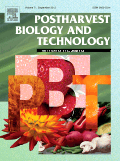
POSTHARVEST BIOLOGY AND TECHNOLOGY
Enhancing Shelf Life: Where Biology Meets TechnologyPOSTHARVEST BIOLOGY AND TECHNOLOGY is a leading journal published by Elsevier, focusing on groundbreaking research in the fields of Agronomy, Food Science, and Horticulture. With an impressive impact factor and quartile rankings of Q1 in 2023 across all three disciplines, it is recognized for its significant contributions to enhancing postharvest processes and technologies. The journal offers a platform for multidisciplinary exchange, welcoming studies that explore innovative methods to improve food quality, shelf life, and safety. Researchers and practitioners alike will find valuable insights in its extensive archives, which encompass studies from 1991 to 2024. While it is not an open-access journal, subscribers gain exclusive access to high-impact articles and critical reviews that facilitate advancements in the sector. Based in the Netherlands, at Radarweg 29, Amsterdam, this esteemed publication is essential for professionals who aim to stay at the forefront of postharvest biology and technology.

MITTEILUNGEN KLOSTERNEUBURG
Exploring New Horizons in Wine and Fruit ScienceMITTEILUNGEN KLOSTERNEUBURG is a prestigious journal published by the Höhere Bundeslehranstalt & Bundesamt für Wein- und Obstbau Klosterneuburg in Austria, focusing on the fields of horticulture and agricultural sciences. With an ISSN of 0007-5922, this journal disseminates vital research findings and advancements within the horticultural sector, emphasizing sustainable practices and innovative techniques in wine and fruit cultivation. It has been recognized for its scholarly contributions, achieving a Q3 ranking in horticulture as of 2023, positioning it among the notable resources in its field. While currently not offering open access options, MITTEILUNGEN KLOSTERNEUBURG remains an essential platform for researchers, professionals, and students alike, fostering knowledge exchange and collaborative advancements in horticultural science. The journal's dedication to supporting research from 1989 through 2024 highlights its longstanding commitment to excellence in the industry.

Terra Latinoamericana
Fostering Dialogue on Soil Health and SustainabilityTerra Latinoamericana is a prominent academic journal published by the Mexican Society of Soil Science, focusing on the essential disciplines of soil science, biochemistry, and ecology. With a dedicated commitment to open access since 2014, this journal provides a platform for researchers and professionals to disseminate and access cutting-edge research aimed at understanding soil interactions, environmental pollution, and ecosystems within Latin America. The journal holds a Q4 ranking in multiple categories, including Ecology and Soil Science, reflecting its growing presence in the academic landscape and its role in fostering scholarly communication within these fields. Though currently positioned in the lower quartiles, Terra Latinoamericana presents a valuable opportunity for emerging scholars and experienced researchers alike to contribute impactful findings and engage with key issues affecting soil health and ecological sustainability in diverse environments. By promoting innovative research and collaborative dialogue, this journal continues to shape the future of soil science and related disciplines, making it an indispensable resource for the scientific community.